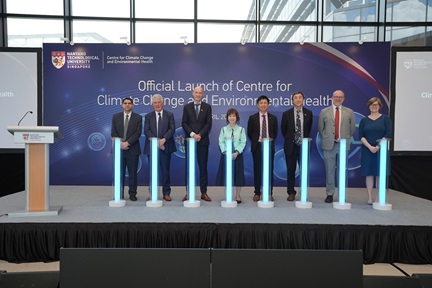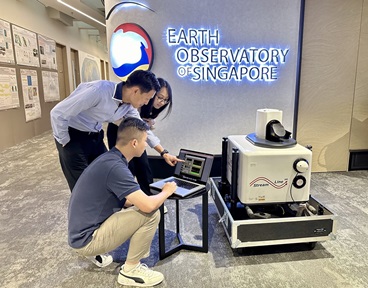Start-up commercialises AI algorithm that can detect leaks instantly in gas pipeline networks

A new sensor network powered by an artificial intelligence (AI) algorithm developed by scientists from NTU Singapore can now accurately detect, in real-time, gas leaks and unwanted water seepage into gas pipeline networks.
The technology was proven successful in field trials conducted on Singapore’s gas pipeline networks and is now being commercialised by Vigti, a start-up incubated by NTU EcoLabs, a national centre launched in April 2019 to help small and medium-sized enterprises (SMEs) and start-ups innovate, grow and thrive in the energy sector.
Such a smart warning system that can rapidly detect small gas leaks and broken gas pipes has been a holy grail for the energy industry, as gas pipes are still manually inspected by workers.
Not only can this technology save time with its real-time detection, it also reduce the manpower and cost needed to monitor and maintain gas pipe networks.
Professor Subodh Mhaisalkar, Executive Director of the Energy Research Institute @ NTU (ERIAN) and a Governing Board Member of EcoLabs, said Vigti’s technology is a prime example of an NTU innovation going from lab to market.
“With ageing infrastructure and rising gas leaks around the world, Vigti’s solution is well-positioned to solve a global problem, mitigating gas emissions and leaks that impact climate change and pose a potential threat to the well-being of communities. At NTU EcoLabs, we have pooled together expertise and the funding for Vigti, which enabled the pilot-scale testing of the technology, paving the way for actual market adoption.”







